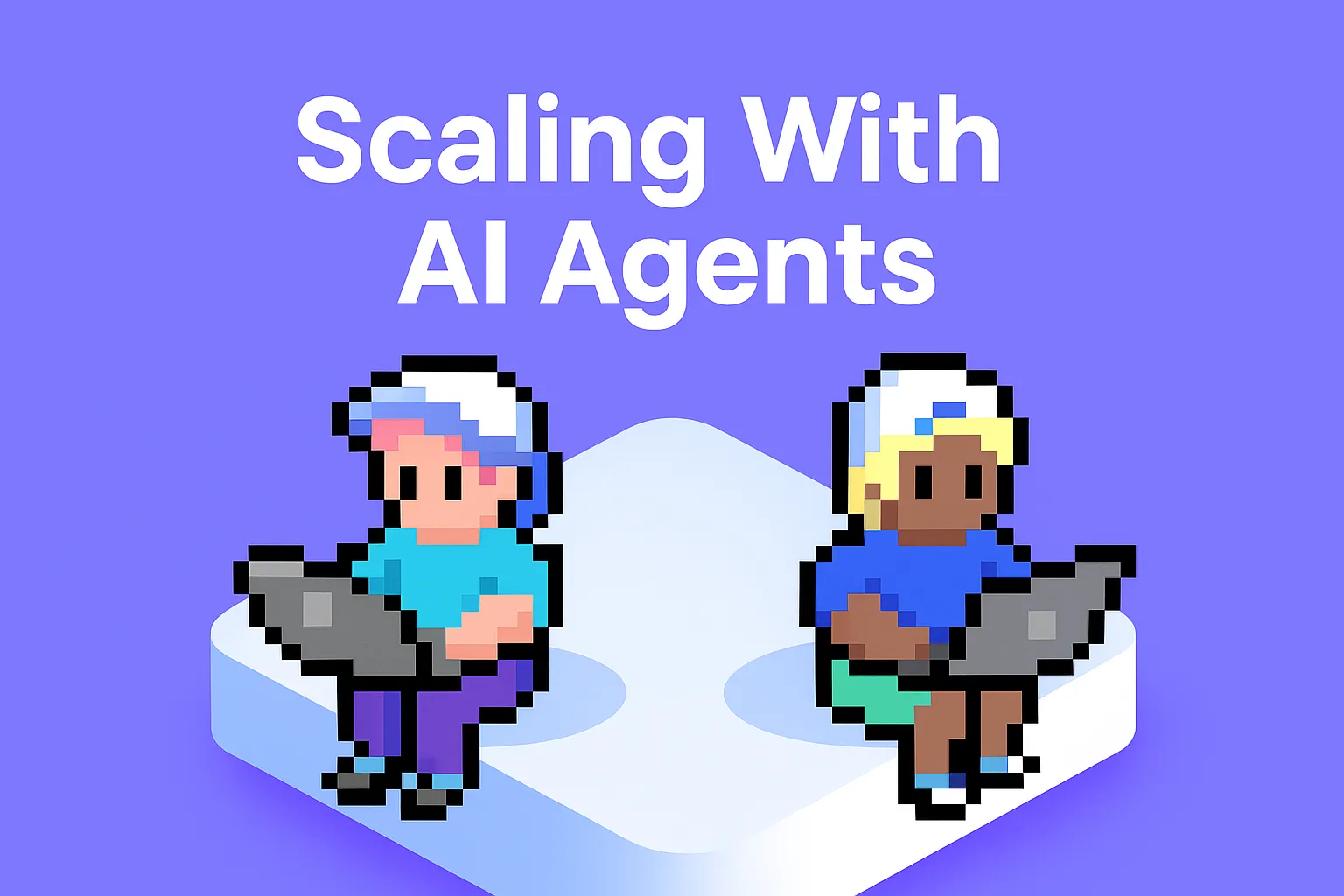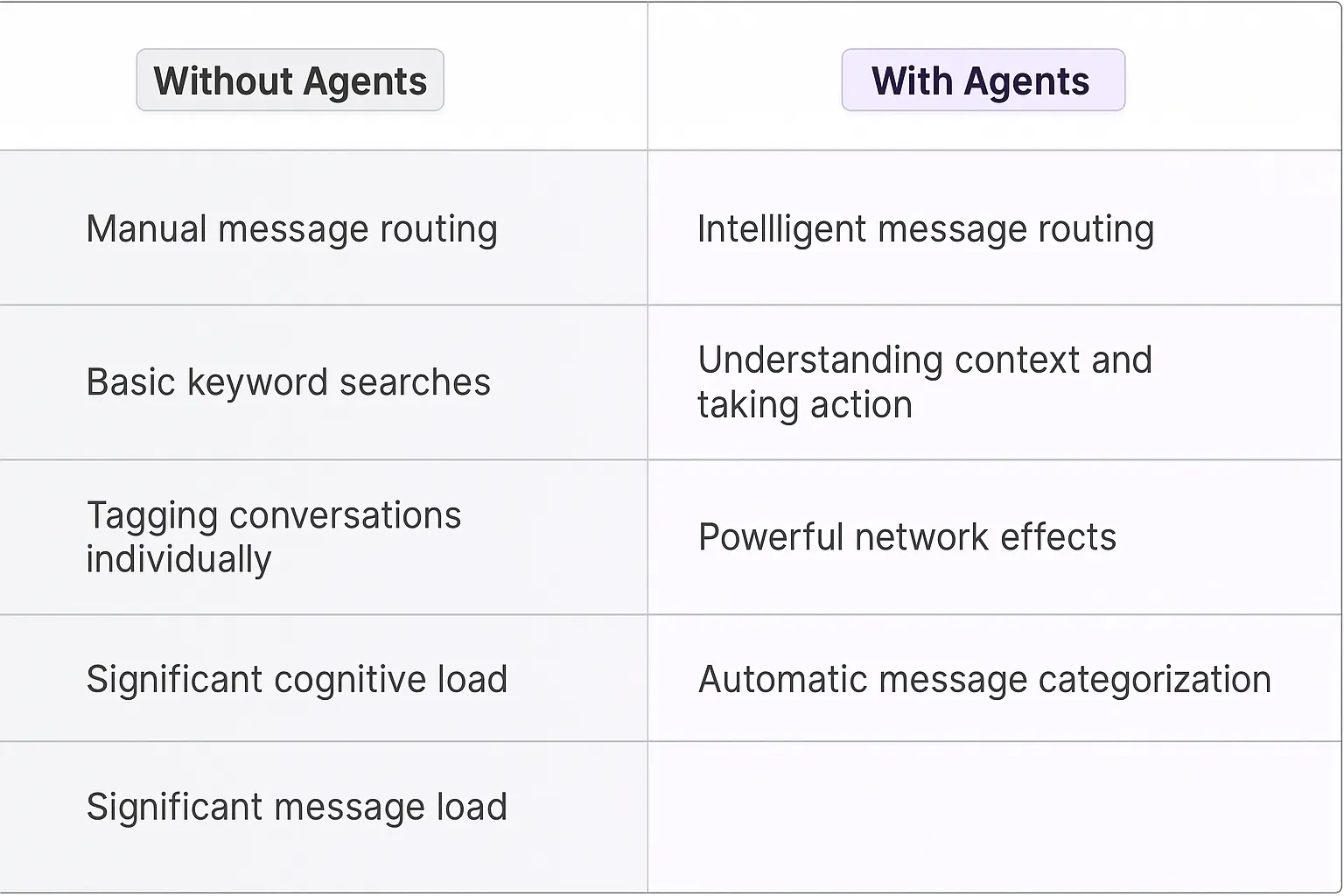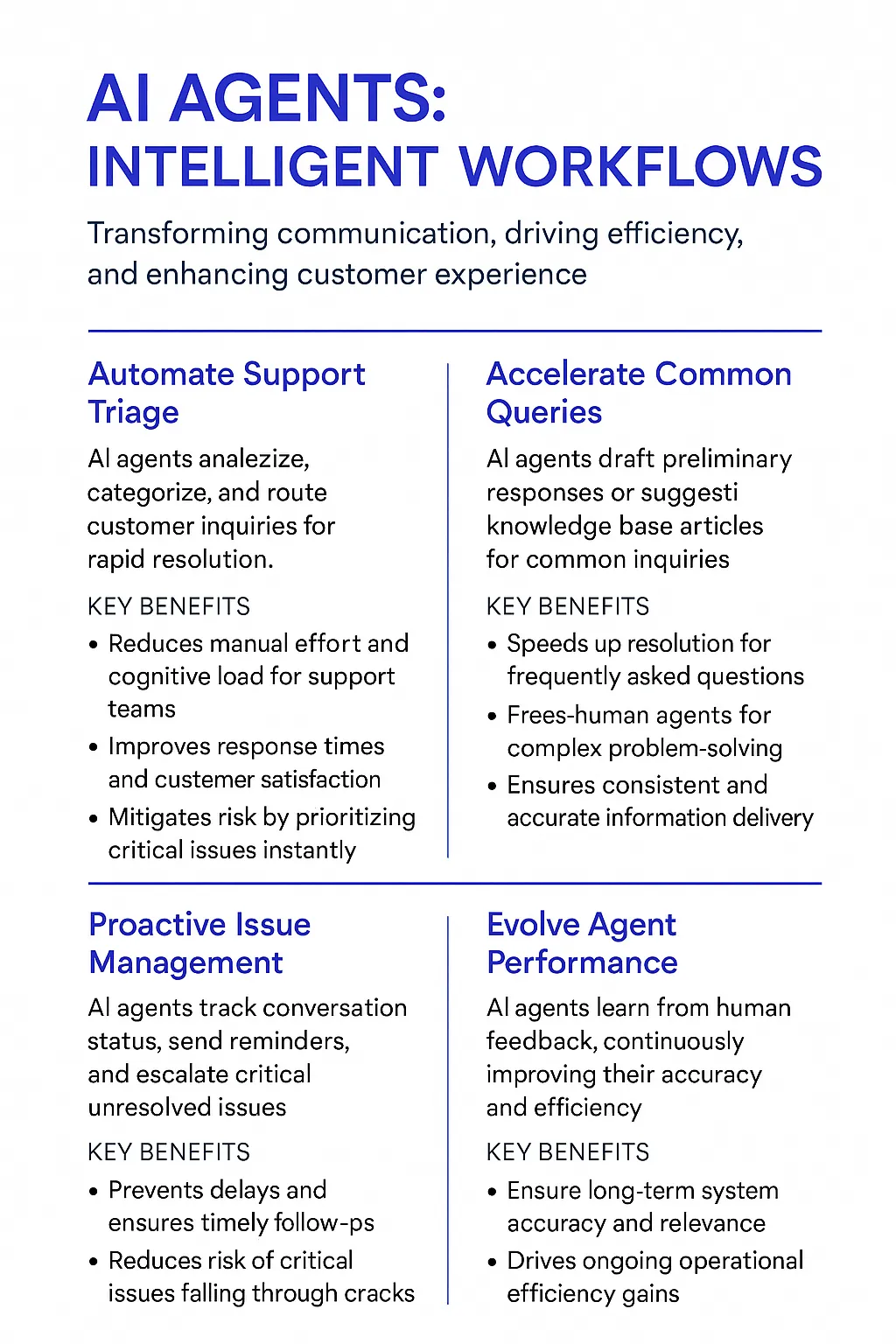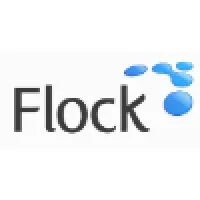Flock
Understanding Flock's AI-Enhanced Communication Platform
Flock stands out as a team communication platform that combines messaging, file sharing, and collaboration tools into a unified workspace. The platform differentiates itself through deep integration capabilities and a focus on team productivity. With the addition of AI Agents, Flock transforms from a communication tool into an intelligent workspace that actively participates in team processes.
Key Features of Flock
The platform's core strengths include real-time messaging, organized channels, seamless file sharing, and video conferencing. AI Agents enhance these features by adding contextual intelligence, automated workflows, and predictive capabilities. The combination creates a dynamic environment where digital teammates work alongside human users to boost productivity and reduce cognitive load.

Benefits of AI Agents for Flock
What would have been used before AI Agents?
Teams using Flock previously relied on manual message routing, basic keyword searches, and human-powered customer service workflows. They spent countless hours tagging conversations, searching through message history, and coordinating responses across departments. The cognitive load of context-switching between different conversations and keeping track of follow-ups created significant friction in communication flows.
What are the benefits of AI Agents?
AI Agents transform Flock from a basic messaging platform into an intelligent digital workspace that understands context and takes action. The network effects are powerful - each interaction makes the system smarter and more personalized to how teams actually work.
The agents excel at pattern recognition across conversations, automatically categorizing messages and routing them to the right people based on content and urgency. This creates massive efficiency gains, especially for customer-facing teams who can now focus on high-value interactions instead of triaging messages.
For technical teams, the agents serve as documentation concierges, pulling relevant code snippets and troubleshooting guides directly into conversations. This reduces context switching and helps maintain flow state during development work.
The most compelling aspect is how the agents learn and adapt to each organization's unique communication patterns and terminology. They begin to understand team-specific shorthand and can proactively surface relevant information based on conversation context. This creates a multiplier effect where institutional knowledge becomes more accessible and actionable.
From a growth perspective, the viral coefficient increases as teams experience faster response times and more informed interactions. The reduced friction in communication flows leads to higher engagement and retention, creating a virtuous cycle of adoption across organizations.

Potential Use Cases of AI Agents with Flock
Processes
AI agents transform Flock from a communication platform into a dynamic workspace where digital teammates handle complex workflows. Teams can deploy agents to manage project timelines, coordinate cross-functional initiatives, and maintain documentation - all within their existing Flock channels.
When integrated with project management, these agents track deliverables, flag potential bottlenecks, and keep stakeholders aligned without constant manual updates. They analyze conversation patterns to identify which tasks need attention and proactively suggest ways to keep projects on track.
Tasks
The granular capabilities of AI agents in Flock shine through daily operational tasks. They excel at:
- Meeting coordination - scanning conversations to suggest optimal meeting times based on mentioned availability
- Document summarization - creating TL;DR versions of long-form content shared in channels
- Data analysis - pulling insights from spreadsheets and reports shared in conversations
- Knowledge base maintenance - organizing tribal knowledge from chat discussions into searchable resources
- Calendar management - handling scheduling conflicts and sending smart reminders
The real power emerges when these agents learn team-specific contexts and terminology. A development team's agent understands sprint-related discussions, while a sales team's agent recognizes deal-specific language and requirements.
Advanced Applications
Forward-thinking teams leverage Flock's AI agents for sophisticated use cases like:
- Automated onboarding sequences that adapt based on new hire responses
- Real-time translation for global team communications
- Competitive intelligence gathering from shared market research
- Customer feedback analysis and trend identification
- Resource allocation optimization across projects
The network effects compound as agents learn from each interaction, building an increasingly valuable knowledge graph of organizational patterns and preferences. This creates a flywheel where each team's usage makes the system smarter for everyone.
Implementation Strategy
The most successful teams start with focused use cases that solve clear pain points. They identify repetitive tasks that eat up valuable time, then gradually expand their agent usage as team members experience the benefits firsthand. This bottom-up adoption creates organic growth in agent utilization across the organization.

Industry Use Cases
AI agents within Flock transform how teams collaborate and execute across different sectors. The real power lies in how these digital teammates adapt to industry-specific challenges while maintaining the core benefits of automated support and enhanced productivity. From healthcare providers coordinating patient care to manufacturing teams optimizing production schedules, Flock's AI capabilities create meaningful impact through contextual understanding and proactive support.
What makes these use cases particularly compelling is how the AI learns and evolves alongside teams' unique workflows. Rather than forcing standardized processes, the AI molds itself to existing practices while identifying opportunities for improvement. This adaptive approach means manufacturing teams can maintain their established protocols while gaining AI-powered insights, and creative agencies can preserve their collaborative culture while automating routine tasks.
The key differentiator is how Flock's AI agents combine industry knowledge with team-specific learning. They don't just execute tasks - they understand the broader context of your industry's demands and challenges. This deep integration leads to more nuanced and valuable interactions that actually move work forward rather than creating additional process overhead.
AI Agents Transform Software Development Teams Using Flock
Software development teams face constant context switching between coding, reviewing pull requests, and addressing urgent production issues. The cognitive load drains productivity and creates bottlenecks that slow down shipping velocity.
AI agents integrated with Flock transform how engineering teams collaborate and ship code. When a developer encounters a bug or needs code review, they can instantly engage an AI agent through Flock that understands the full context of their codebase, pull request history, and deployment patterns.
The AI analyzes error logs, suggests specific fixes based on similar past issues, and even generates properly formatted code snippets that match the team's style guide. For code review, the AI agent examines pull requests in real-time, flagging potential issues around performance, security, and maintainability before human reviewers need to get involved.
This creates a powerful feedback loop where the AI agent learns from each interaction to provide increasingly relevant suggestions. Engineering managers gain insights into common bottlenecks and can optimize team workflows based on data rather than gut feel.
The result? Development teams using AI agents in Flock report shipping features 30-40% faster with fewer bugs making it to production. The AI handles the routine cognitive load so developers can focus their energy on solving complex technical challenges.
This represents a fundamental shift in how software teams operate - moving from purely human collaboration to seamlessly blending human and AI capabilities through platforms like Flock. The most successful engineering organizations will be those that effectively leverage AI agents as force multipliers for their development teams.
AI Agents Transform Education Through Flock's Learning Ecosystem
Educational institutions face a massive coordination challenge - managing thousands of student questions, grading assignments, and providing personalized feedback across multiple courses and subjects. The traditional model of office hours and email threads creates bottlenecks that limit student learning outcomes.
AI agents within Flock's platform are reshaping how educators and students interact. When students get stuck on complex topics, they connect with AI agents that understand the full context of the course material, previous assignments, and common conceptual hurdles. The AI provides targeted explanations and practice problems matched to each student's learning style and progress.
For educators, AI agents handle the initial round of assignment grading, providing detailed feedback on technical accuracy, writing clarity, and areas for improvement. This allows professors to focus their time on higher-level mentoring and curriculum development rather than routine grading tasks.
The network effects are profound - as more students and educators interact with the AI agents, they build deep knowledge of effective teaching patterns and learning approaches. Course coordinators gain data-driven insights into which concepts students struggle with most and can adapt their curriculum in real-time.
Universities implementing AI agents through Flock report 40% higher student engagement rates and significant improvements in learning outcomes, particularly for traditionally challenging STEM courses. The AI creates a 24/7 support system that helps students master difficult material at their own pace.
This signals a fundamental evolution in education delivery - moving beyond the constraints of human-only instruction to a hybrid model where AI agents augment and enhance the capabilities of educators. The institutions that thrive will be those that effectively blend human teaching expertise with AI-powered personalization at scale.
Considerations and Challenges
Implementing Flock AI agents requires careful planning and awareness of several key challenges that organizations commonly face. The complexity goes beyond simple integration - it touches core communication patterns and workflow dynamics.
Technical Challenges
API rate limits create natural bottlenecks when scaling Flock AI agents across larger teams. Organizations need robust error handling and queue management systems to prevent disruptions during high-volume periods. Data privacy also demands careful architecture choices, especially when AI agents process sensitive internal communications.
Integration with existing tools requires custom middleware development in many cases. The Flock API documentation, while comprehensive, may not cover every edge case that emerges in production environments. Teams should plan for additional development cycles to handle these scenarios.
Operational Challenges
Change management becomes critical when introducing AI agents into established communication flows. Teams often develop specific interaction patterns that may clash with how the AI agents operate. Creating clear guidelines around when and how to engage with AI agents helps prevent confusion and resistance.
Training requirements extend beyond just technical setup. Teams need to understand AI agents' capabilities and limitations to use them effectively. This includes setting realistic expectations about natural language understanding and response accuracy.
Cost Considerations
While Flock AI agents can drive efficiency gains, organizations must account for both direct and indirect costs. Beyond subscription fees, hidden costs emerge from increased API calls, storage requirements, and potential needs for dedicated support staff. Teams should implement usage monitoring to track ROI and prevent unexpected cost escalations.
Security Implications
AI agents introduce new attack vectors that security teams must address. Access control mechanisms need careful configuration to prevent unauthorized data exposure. Organizations should conduct thorough security audits before deploying AI agents in sensitive environments.
Regular security updates and monitoring become essential parts of the maintenance routine. Teams must stay current with both Flock's security recommendations and broader AI security best practices.
AI-Enhanced Collaboration: The Future of Team Productivity
The integration of AI Agents into Flock represents a fundamental shift in how teams collaborate and work. Organizations that effectively leverage these digital teammates gain significant advantages in productivity, knowledge management, and team coordination. The network effects and learning capabilities of AI Agents create compound benefits that increase over time. As teams continue to evolve their work patterns, the combination of human expertise and AI capabilities through platforms like Flock will become increasingly central to organizational success.













